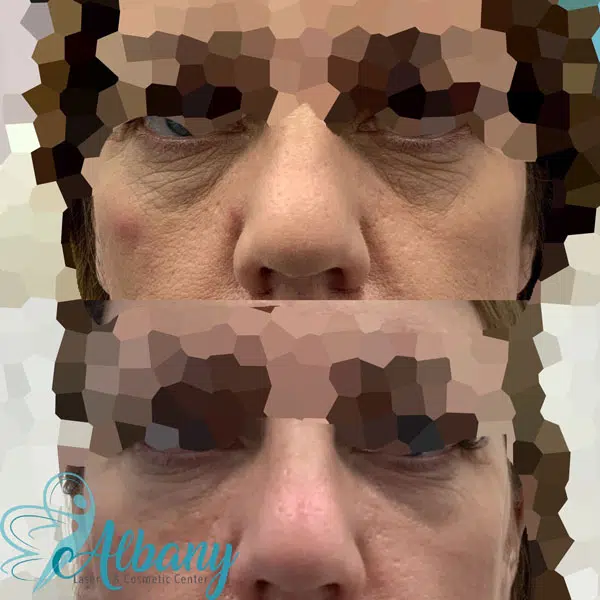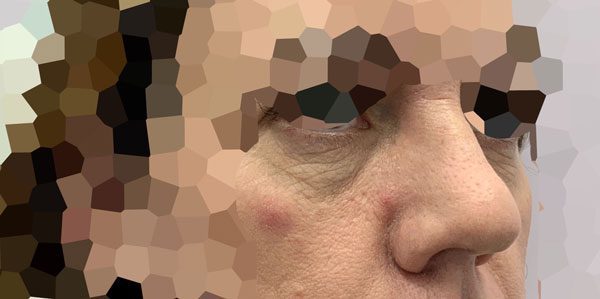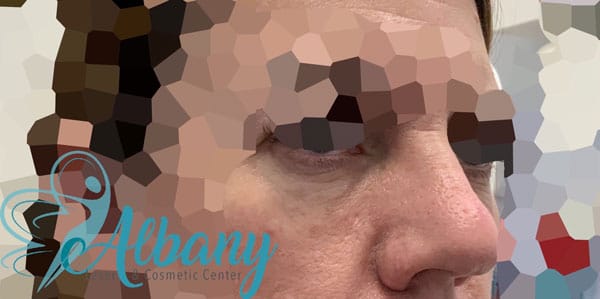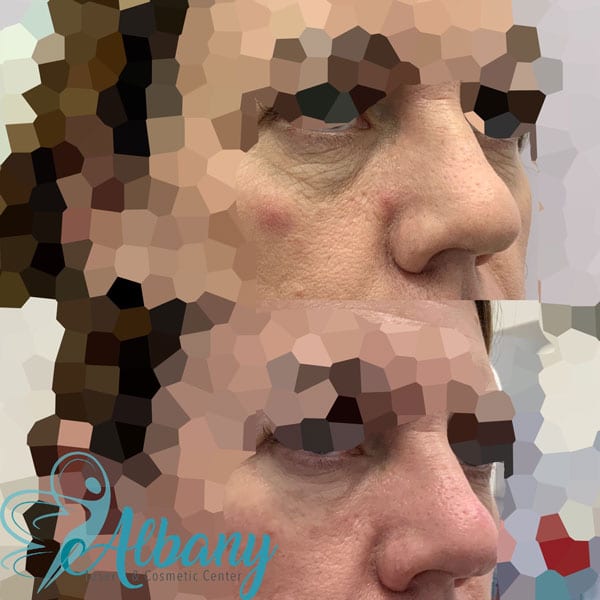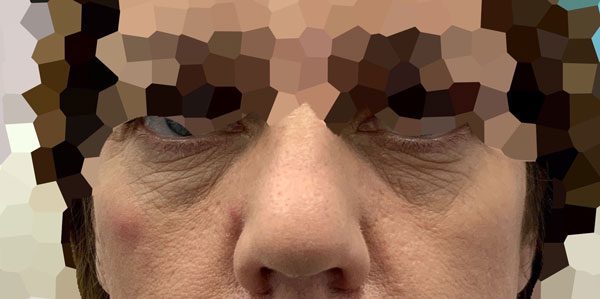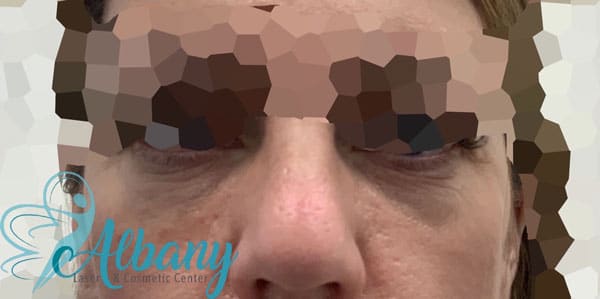Results of Under-eye Fillers
The hollowed appearance of the under-eye area may be caused by genetics or volume loss associated with age. Environmental factors such as excessive sun exposure or behaviours such as cigarette smoking can also impact the skin internally and outward. Hollowness can affect the whole area under the eyes, extending to the upper cheekbones or only the little area directly beneath the eyes, known as the tear trough.
Under eyes treatment with Undereye Fillers
We inject a softer hyaluronic acid filler such as Restylane Silk or Juvederm Volbella. Additionally, new fillers are being developed that may be beneficial. A softer filler is acceptable since the lower eyelid skin is the thinnest in the body at 0.5mm and moves freely with facial expressions. Gentler hyaluronic acid fillers do not influence the look of the eyes in the same way as thicker fillers or facial implants. Additionally, a flexible filler can be shaped to match each individual’s particular area under the eyes. The entire technique, including any necessary touch-ups, takes only a few minutes.
How long does undereye filler last?
It depends on the patient’s metabolization of the substance. Restylane Silk and Juvederm Volbela are injectable cosmetic fillers that generally last between 4-6 months. Hyaluronic acid is a naturally occurring gel-like material in the body that is properly digested over time and is hypoallergenic.
Upper cheeks volume insufficiency
Volume insufficiency in the upper cheeks may cause hollow under the eyes and asymmetry between the left and right sides of the face.
The upper cheeks may have a volume differential due to the inherent asymmetry between the two sides or volume loss associated with age. In such circumstances, volumizing the tear trough with a filler may be ineffective and cause complications due to the absence of an upper cheek “shelf” to maintain the volume.
What is Structural Volumizing?
Structural Volumizing is a specialist procedure for injecting fillers into the cheeks and other facial regions. Structural volumizing injects long-lasting fillers into the bone to compensate for aging bone loss and provide fundamental volume.
Can cheeks cause Undereye Hollows?
Fillers are often injected into soft tissue, which may be unable to hold the filler’s weight. As a result, the material weighs the face down or creates a doughy or pillowy look. Structural Volumizing, supported by the bone and maintained in place by the face muscle layer, gives definition and youthful fullness with natural-looking results.
Structural Volumizing allows for the insertion of more filler volume than standard filler placement. The bone structure supports the weight, and muscle preserves its form considerably more effectively than fat or soft tissue.
Dr. Alhallak (a Pharmacist with a Ph.D. from the University of Alberta) employs various strategies to get the greatest outcomes. Depending on the situation, it may comprise laser coagulation, filler injection (Juvederm or Restylane), and threads. We also inject botox into the DAO and Levator muscles in certain instances.
Facts about Case # 1203
- Procedure Cost: $750
- Procedure Time: 20 Min
- Downtime: 3-7 days
- Results: Refreshed look
- Adverse Effects: Bruising
- Lasts for 4-6 months
Sculptra Butt Lift: Case No. 1057
Undereye fillers: Case No. 1104
